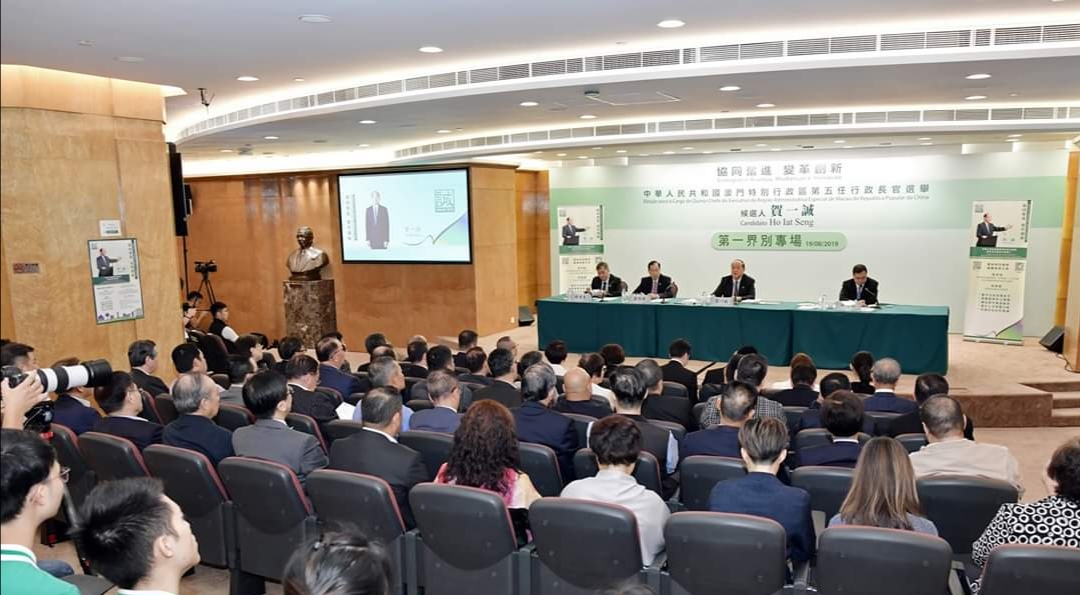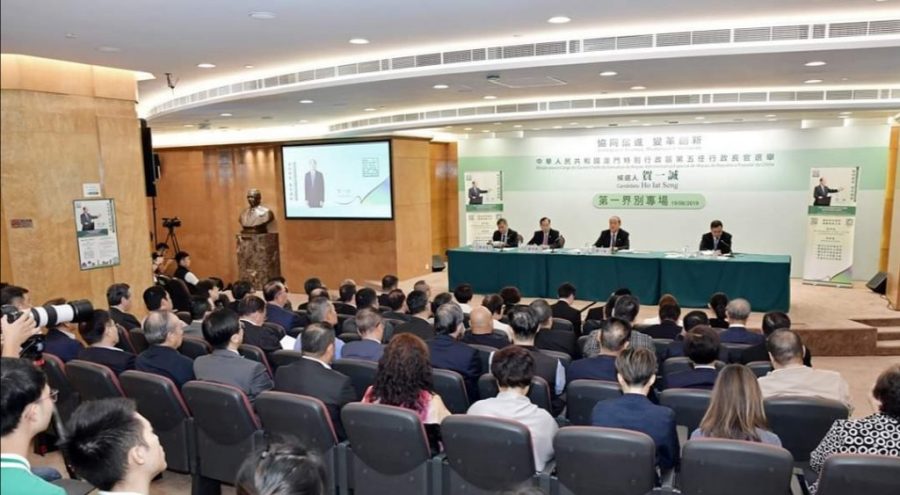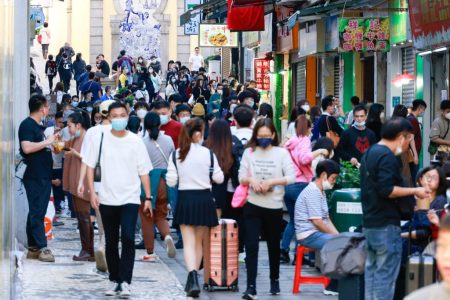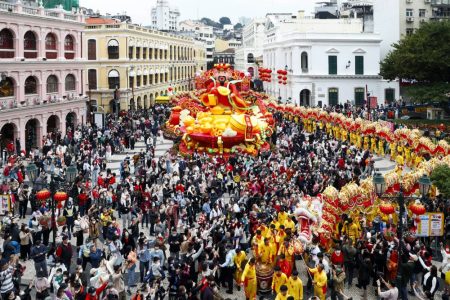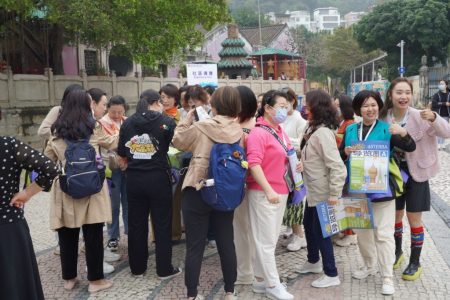Chief executive candidate Ho Iat Seng said on Monday that the current government’s practice of organising big events during the city’s peak tourist seasons has put further pressure on the city’s tourism carrying capacity.
Ho attended a Q&A session with members representing the industrial, commercial and financial sector – known as the first sector – on the Chief Executive Election Committee. The 400-member committee has 120 members from the first sector. Monday’s session at the headquarters of the Macau Chamber of Commerce (ACM) in Zape was attended by 51 electors from the sector.
A total of eight participants asked Ho questions during the Q&A session on issues such as economic diversification, tourism carrying capacity, the gaming industry, urban renewal, the hiring of non-local professionals, and Macau’s role as a platform between China and the Portuguese-speaking countries (PSCs).
Ho made the remarks about Macau’s different tourist seasons when answering a question from election committee member Cheung Kin Chung, who said that most of Macau’s tourists visit the city’s during the peak tourist seasons such as the Chinese New Year and the National Day Golden Week. Cheung said this showed that Macau was able to receive more tourists during the low tourist seasons.
In his question, Cheung, a businessman from the tourism sector, noted that Macau has more than 30,000 hotel guestrooms, which he said shows that the city has a high tourism carrying capacity. Cheung said that therefore an “insufficient” number of tourists would have an adverse impact on the city’s business environment. Cheung suggested that Macau should develop a more “refined” tourism industry with different districts promoting their own special features.
Ho admitted that during the peak tourist seasons Macau is affected by the overcrowding issue. Ho noted that not only does overcrowding adversely affect tourists’ travel experience but also residents’ lives. Ho suggested that whenever a peak tourist season is approaching, the local government should hold talks with its counterparts on the mainland with the aim of coming up with specific measures – such as promotions on the mainland’s social networking sites – to encourage mainland tourists to visit Macau some time before or after the respective peak tourist period. Ho said that, for instance, special promotions could be launched for those who want to savour Macau’s Chinese New Year atmosphere by encouraging them to visit Macau before the third day of the Chinese New Year – the day when Macau usually recorded the highest number of visitor arrivals during the Chinese New Year period in recent years.
According to the Macau Post Daily, Ho also noted that the current government often organises big events during the city’s peak tourist seasons. Ho noted that this practice has put further pressure on the city’s tourism carrying capacity during periods which are already affected by overcrowding. “When [tourist attractions] are already overcrowded, [the government] is still organising so many events [as if they were the] icing on the cake. The money that has been wasted [on organising too many events] merely results in more people [visitors],” Ho said, adding that the government should instead organise more big events during the low tourist seasons so as to divert more tourists to the low tourist seasons.
